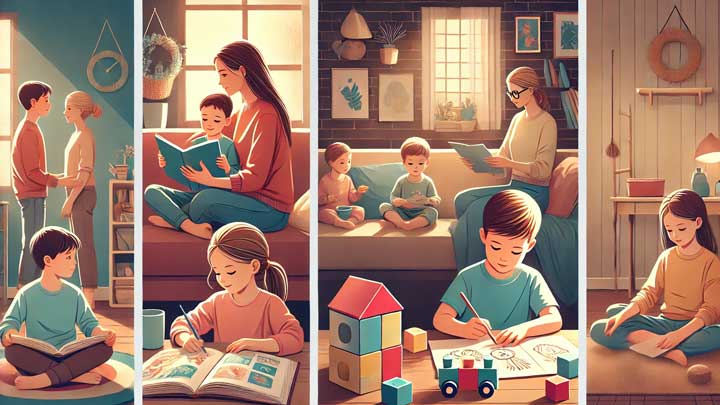
Free-Range Parenting
Free-range parenting emphasizes trust and independence, giving children the freedom to explore and learn responsibility within safe boundaries.
Home > Parenting Challenges > Parenting Mistakes > Ignoring Individual Needs

“We treat all our kids the same.” It sounds noble—like equality, fairness, and consistency. But children aren’t the same. And parenting isn’t a one-size-fits-all practice. When parents ignore individual needs—emotional, developmental, personality-based—they unintentionally create a disconnect. One child feels unseen. Another feels misunderstood. The third feels compared. This article explores why recognizing each child’s unique makeup isn’t favoritism—it’s *essential*. Fair parenting means giving each child what *they* need to grow, not what someone else needed or what seems equal on the surface.
Ignoring individual needs means parenting from a template rather than from presence. It’s applying the same discipline, expectations, affection style, or communication method across all children—regardless of their personalities, sensitivities, or emotional blueprints. One child may need more structure. Another thrives with space. One needs physical affection, while the other craves words of affirmation. When we treat them all “the same,” we often miss the very thing that makes them feel loved: being understood.

Free-range parenting emphasizes trust and independence, giving children the freedom to explore and learn responsibility within safe boundaries.

Permissive parenting allows children freedom with minimal rules. Discover its impact, challenges, and ways to combine warmth with structure.

Secondary parenting emphasizes the role of extended family or caregivers in nurturing a child’s growth. Learn how to build harmony with primary parenting efforts.

Unconditional parenting emphasizes love and acceptance regardless of performance, nurturing emotionally secure and confident children.

Many children’s emotional needs go unseen by busy, well-meaning parents. This article explores why that happens and how to repair the damage—before it becomes long-term.
When a child feels seen for *who they are*, not compared to *who someone else is*, their whole being relaxes. They begin to trust themselves. To express freely. To know they’re not “wrong”—just unique. That’s where true confidence comes from. Not in fitting a mold, but in being valued outside of it. When you parent the child in front of you, instead of a version in your mind, you create safety. And in safety, they bloom.
Our parenting style quiz shows you how your default settings—based on your own upbringing—may impact how you treat different children. Are you more controlling with one, more passive with another? Do you recognize all your children’s emotional cues? The quiz helps surface unseen imbalances—and offers practical ways to create individualized care, without favoritism or guilt. Let each child be seen. Let yourself be stretched. This is where real growth begins.
Fair doesn’t mean identical. It means intentional. Your children don’t need a carbon-copy childhood. They need *their* childhood—shaped by their own strengths, fears, rhythms, and dreams. When you stop parenting from a place of balance—and start parenting from a place of belief—you see them. And being seen? That’s where every child’s story truly begins.
